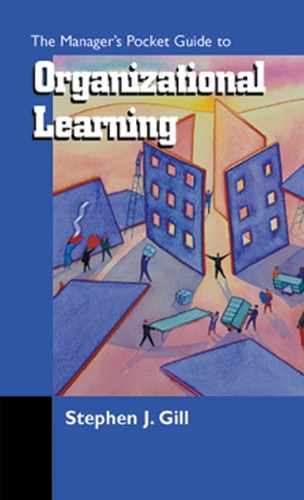Principles of Individual Learning
,Much has been studied and written about how adults learn. For our purpose here, we will focus on what researchers identify as key principles that describe most adults most of the time (there are exceptions). Keep these twelve principles in mind as you design learning experiences for yourself and for your employees, and as you help employees design their own learning experiences.
12 PRINCIPLES OF ADULT LEARNING
1. No two people learn in exactly the same way.
2. Employees can be ordered to do something new, but they cannot be forced to learn.
3. Adults are motivated to learn by significant work and life changes, and when they believe that what they will learn will help them cope with those changes.
4. For some employees, learning is its own reward; for most employees, learning is a means to an end.
5. Enhanced self-esteem and pleasure are strong secondary motivators of learning.
6. Adults have teachable moments, when the timing of learning is critical to its success and retention.
7. Employees want the opportunity to apply newly learned knowledge and skills to relevant problems in the organization.
8. Adults learn best when they can integrate new information with what they already know.
9. Fast-paced, complex, and unusual learning tasks interfere with learning for adults.
10. Adults tend to let their own errors affect their selfesteem, which causes them to avoid risk by resorting to old ways of doing things.
11. Adults prefer to have a say about the design and direction of their learning experiences.
12. Adults prefer learning experiences that provide opportunities for interaction with their peers.
